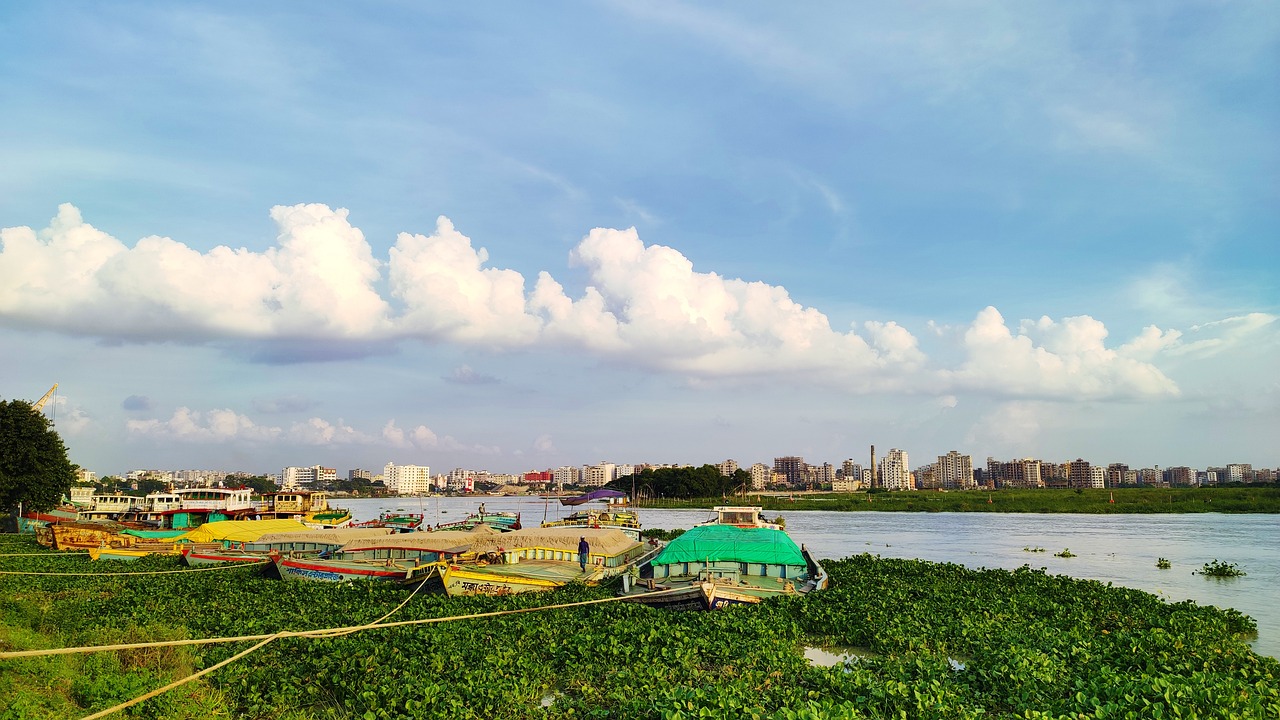Summary of Findings:
The baseline survey on TROSA Phase 2: Rivers Rights and Resilience (T2:3R) depicts the current situation of the Ganges, Brahmaputra, and Meghna (GBM) and their respective representative sample of sub-basins in Bangladesh. The survey has also delved into transboundary river cooperation and governance by collecting insights from the Government, civil society, International Organizations, and Academia.
Strengthened climate-resilient livelihoods of communities living in the transboundary GBM river basins.
Climate change has exacerbated the existing difficulties of the communities across all the sub-basins. There are two extremes: floods during the monsoon and droughts during the dry season. The Rupsha sub-basin is the flash point for the climatic impacts as it is near the coastal region and has a direct impact from the increased salinity, storm surges, and cyclones that can be directly attributed to climate change.
The main livelihood of the sub-basin communities, fishing and agriculture, has been heavily affected by poor natural resource governance and climatic impacts. A proliferation of malpractice in fishing has reduced fish stock in all the sub-basins. However, this malpractice has been triggered by more significant transboundary dynamics that have impoverished these communities. For example, the abundance in the availability of fish has declined severely due to the construction of barrages and other infrastructure across the borders. Moreover, the powerful local elites are financing the fisherfolk by using ring nets, electrification, and poisoning to catch fish.
Climate-induced changes in precipitation patterns have reduced agricultural yields and crop losses across the subbasin. The unpredictable weather pattern has forced farmers to quit their profession to pursue waged day labour or migrate outside the community. Moreover, subbasins with water scarcity issues face tremendous hurdles in tackling the prolonged dry season.
Elite captures are a significant commonality in all the sub-basins; powerful local elites operate dredging machines that extract sands much higher than the local ecological carrying capacity, increasing the risk of river erosion. Moreover, the dredging machines have replaced the livelihood opportunities of the local communities, who have become out of work due to the exploitative dredging contract from the Government. Similarly, many elite political actors and industrialists have registered as fishermen to obtain a fishing licence in the wetland, depriving the marginalized fisherfolks of livelihood from fishing.
Improved and inclusive management of transboundary river ecosystems and protection of biodiversity across the GBM river basins
Numerous government institutions are working in tandem to manage the transboundary rivers. Despite the establishment of the National River Conservation Commission (NRCC) in 2014, the institution responsible for river governance and infrastructure development around the river, the Forest Department, Bangladesh Inland Water Transport Authority (BIWTA), Bangladesh Water Development Board (BWDB) and Local Government Engineering Division (LGED) often have lack of coordination in river governance. The biodiversity is in crisis in all the sub-basins due to the need to own the communities to manage the transboundary river ecosystem. The Government institutions need the workforce to provide regulatory oversight on the different forms of exploitation prevalent in the GBM basin. The marginalized communities are deprived of their rights to participate in crucial decision-making processes to access natural resource rights.
Strengthened leadership of civil society, especially women, Indigenous People, and youth, to influence the Government and private sector on water governance across and between the transboundary GBM basins
The local communities need the collective capacity to govern the river ecosystem; a few isolated examples, such as the Community Patrol Group (CPG), support the Forest Department in preventing poaching in the Sunderbans forest and preventing pollution of the Poshur River. But most fisherfolks and farmers’ organizations need the political leverage to push for reforms or demand their fundamental rights. The elite and politically powerful have overpowered the marginalized communities in the sub-basin to establish a regime of hyper-capitalistic accumulation through exploiting natural resources. Moreover, the Government has primarily disregarded marginalized communities’ basic needs and rights. The civil society space in Bangladesh has been stifled and has limited capacity to hold the private sector and the Government accountable. Civil society activism largely depends on donor priorities and does not sustain focus on resolving the core crisis marginalized communities face.
Strengthened cooperation, collaboration, and accountability across and between the transboundary GBM river basins.
Transboundary river cooperation is nestled in the complex geopolitical race of the upper riparian countries India and China to hold water for its economic and political interests. The securitization of water has made discussion on transboundary rivers a highly politically charged issue; the rights of the lower riparian countries to equitable access to water have been trampled under these political stalemates. Scholar on International Water Diplocy suggests finding solutions in scalar interventions, that is, small-scale interventions that have a more extensive ecosystem impact. For example, the conservation of the Ganges Dolphin across India and Bangladesh would require improvement in water quality in both jurisdictions. It might open avenues for dialogues regarding cooperation equitably sharing water for more expansive breeding space of the dolphins. There must be an ecological strategy for civil society organizations, with several possible scalar interventions that can forge regional cooperation through mutual economic interests.

